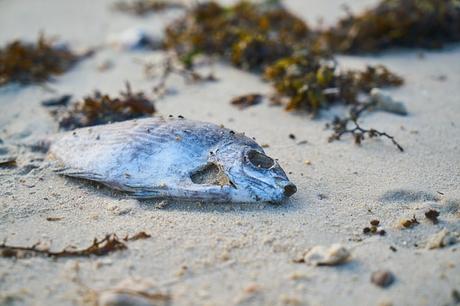Climate change threats are growing even for animals as they are failing to adapt to the accelerating climate crisis, including common species such as sparrows, magpies, and deer, a study warns. The pace of climate change is outstripping adaptation capacity of the animal.
The results are alarming as there is a noticeable lag between behavioral changes in animals of the natural world and change in seasons driven by humans as described by the scientists who conducted the research.

The species are still following earlier timing of biological events such as budding of plants, egg-laying by birds, and flying of insects while responding to warming temperatures, according to earlier academic work. The new metastudy, published in Nature Research, examines its effectiveness in terms of their reproduction and survival.
An apparent lag was noticeable in most of the species studied based on 10,090 abstracts and data extracted from 71 published studies and found that not a single species could be considered safe. “The probability that none of the study species is at risk is virtually zero,” the paper notes.
As per authors, the study did not cover hundreds of thousands of species and particularly the birds that are found to dwell in the northern hemisphere. For animals that are at a higher risk of extinction, the adaptation problem could be much more than expected due to the current onslaught of climate change.
Viktoriia Radchuk of the Leibniz Institute for Zoo and Wildlife Research in Germany said: “Personally I find the results alarming. Species attempt to adapt to a changing environment, but they cannot do it at a sufficient pace to ensure that populations are viable. Climate change has caused irreversible damage to our biodiversity already, as evidenced by the findings of this study. The fact that species struggle to adapt to the current rate of climate change clearly indicates that we have to take action immediately in order to at least halt or decrease the rate. ”
Senior conservation personalities issued similar warnings to the UK parliament on Tuesday as the natural infrastructure of the nation which is in charge of providing clean air, fresh water, carbon sequestration, and human wellbeing has been damaged by the pollution, climate crisis, urban sprawl, and budget cuts.
Tony Juniper, the chair of the government’s main advisory body on conservation, Natural England, said: “The 21st century will be characterized by our success or not in wrestling with these huge challenges. If we carry on as we are, I fear biodiversity will continue to decline in this country.”
Over the past ten years there had been a 60% budget cut in the current system monitoring and protecting nature reserves and sites of particular scientific interest, Tony told the Environmental Audit Committee, which understandably had left the entire crew stressed and demoralized.
There was still time and opportunity to reverse this, he said, and with a plan “nature recovery network” that has been outlined to rebuild woodlands and peatlands, and for the restoration of soil quality and protecting species working with the farmers, it is possible to reduce carbon dioxide causing global warming.
“This is the soundest investment we can make in the future of the country,” Juniper said. “Unlike other assets – like roads and bridges, which depreciate over time – you get more value in the future,” he said, citing the estimates of economists of a 10 to 100-times return with reference to better food, water, and carbon sequestration.
John Gummer, the head of the Committee on Climate Change agrees that it would not be possible for the UK to hit the target of “net zero” emissions by 2050 unless investments are made in biodiversity protection and renewal.

